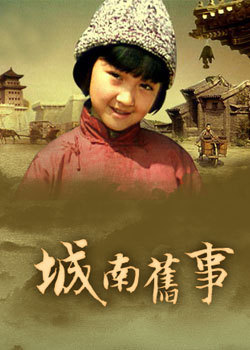|
I. Prosperous film creation
In October 1979, the 4th national congress of the Chinese literary and art circles was held in Beijing. It was a milestone for the literary and art circles to make a turning point in the new historic stage. Comrade Deng Xiaoping delivered a speech to the congress on behalf of the Central Committee of CPC and the State Council. He spoke highly of the achievements made in the literary and art circles in the past three decades, particularly those after reform and opening up. He said that "the literary and art teams are good." "They deserve the trust, care and respect of the Party and the people." He reiterated the principle of letting a hundred flowers blossom and a hundred schools of thought contend, and other correct literary and art policies. He emphasized the thought that "the literary and art belong to the people." He called on people from the literary and art circles to “seriously think over the social effects of our works, and strive to dedicate the best nourishment for the mind to the people,” and “actively contribute to constructing highly developed socialist spiritual civilization.”
Under the guidance of comrade Deng Xiaoping and other state leaders, the Chinese film industry workers emancipated their minds, set things right, broke through forbidden zones, and innovated boldly. They kept the Chinese film creation in the ascendant, and gradually stepped into a phase of sustaining prosperity. A large group of films showed themselves, such as the revolutionary themed films The Xi’an Incident and Nanchang Uprising, the industrial themed film Trouble Happened at Home, the agricultural themed film Laughting in the Moon Village, youth life themed film Sunshine in Spring, the film adapted from famous novel Rickshaw Boy, and anti-foreign invasion themed film Red River Valley. They presented a splendid panorama of films for the Chinese people.
II. Win international prizes
Soon after the founding of New China in 1949, many films won prizes on international film festivals. In the new historic period, Chinese films won many awards as well, earning new reputations for the country in the world. For instance, My Memories of Old Beijing won the gold eagle prize for best motion picture at the 2nd Manila International Film Festival. Bubbling Spring won the gold elephant prize at the 3rd India International New Youth Film Festival.

It must be noted that Chinese films have edged into and won highest honors at the six Class-A film festivals in the world that are recognized by the International Federation of Film. It shows that Chinese films have the capacity to compete with global major film powers.
In recent years, some other outstanding Chinese films have won prizes at various international film festivals. In some other popular international film festivals, Chinese films have proved success. Over the past three years, Chinese films have won about 40 awards in all sorts of international film festivals.
Chinese animated cartoon films have become increasingly welcomed by audiences across the world. Similar to Chinese feature movies, they have won one prize after another, attracting warm responses. In 1978, when it was first shown at the British London International Film Festival and awarded an excellent film prize, Monkey Makes Havoc in Heaven (two volumes) was believed “the most stirring and active film at the London Film Festival in 1978.” Over the past years, Chinese science and educational films have also made breakthroughs. They have won admirable results in international professional film festivals. For instance, the Thirteenth Green Leaf won the professional judge panel prize at the 11th International Agricultural Film Festival in 1994. Great Wall won the silver prize for knowledge enhancement at the 34th International Scientific Agriculture and Environment Film Festival in 1996.
The Chinese films have made such tremendous achievements in a short period of time. They have admirably exhibited their own cultural heritages and artistic glamour at international film festivals, revealing the pride of the Chinese nation and enhancing the confidence of Chinese filmmakers. In particular, the fifth generation film directors are emerging. They have attracted great concern and interests in the international film sector with their brand new films.
|
